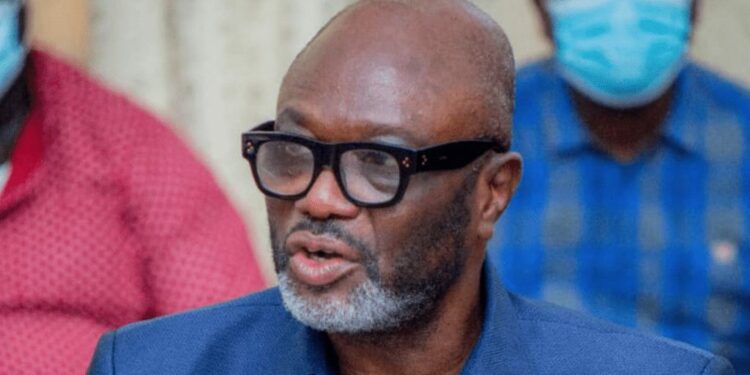RelatedPosts
Dr. Joseph Obeng advocates comprehensive restructuring of VAT
In a candid address at the National Stakeholders Forum on Tax Equity in Ghana, Dr. Joseph Obeng, President of the Ghana Union of Traders Association (GUTA), spotlighted glaring inefficiencies and disparities within the nation’s Value Added Tax (VAT) framework.
Central to Dr. Obeng’s critique was the palpable non-compliance evident in the VAT sector, attributing this malaise to a lax enforcement mechanism.
Ghana’s VAT regime, as delineated by the GUTA president, manifests in three distinct rates: a prevalent 22% standard rate, a 4% flat rate, and an exemption threshold that absolves select businesses from the VAT ambit.
“This then means that some consumers will not pay the VAT when they have the discretion to buy from businesses that do not charge VAT because of their threshold which takes those businesses out of the tax collection net,” he remarked.
Compounding this fiscal conundrum, Dr. Obeng elucidated that a mere 4 million out of a potential 13 million taxpaying Ghanaians fulfill their tax obligations, hence the need to spread the tax net and ensure tax equity.
He added that Ghana’s tax to GDP is low because the country’s tax systems are not well spread out to capture many people, and only the few that can pay, are the ones that are paying the taxes.
“Taxes must be fairly distributed and affordable to ensure compliance and payment by businesses and Ghanaians,” he added.
A revamped VAT system could serve as the linchpin, fostering fiscal equity and galvanizing broader tax compliance. As Ghana charts its economic trajectory, the clarion calls for fiscal recalibration resonate with increasing urgency.
The National Stakeholders Forum on Tax Equity in Ghana organised by Revenue Mobilisation Africa (RMA) and International Budget Partnership was on the theme ‘Promoting tax equity in Ghana – the role of key stakeholders’ on Thursday, December 21, 2023.








